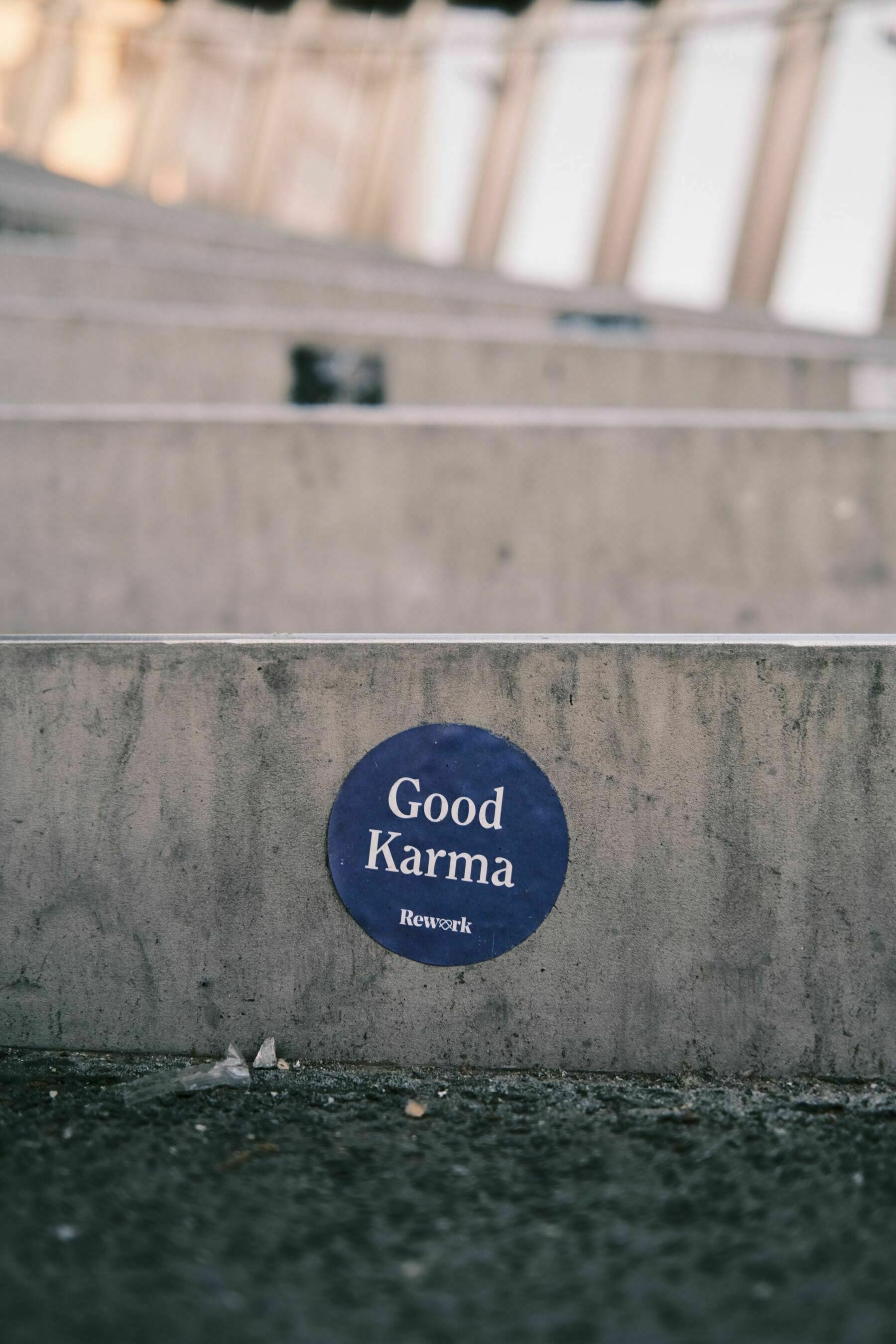
“Karma’s a bitch.”
Did that get your attention? 😏
I am sure it did. Pastors are not supposed to use that kind of bad language.
This little sentence is something that we hear often in our world isn’t it? It points to this sense that “what we put out into the universe will return to us.” If we do bad things, then we get bad things in return, so the thinking goes.
Karma can be useful as an answer to the age old question, “Why do bad things happen to good people?” Well, you did bad things in a previous life and those bad choices are being visited on you in this life, so the thinking goes.
Karma can also challenge us to do better. If we believe that any bad action will ultimately be returned to us in some way, we will likely try to choose the better.
In a nutshell, karma argues that every action has consequences.
That resonates, does it not?
We like the idea that when a bad person does a bad thing that they will face consequences of their bad action. But, what do we do when we are that bad person? Most of us don’t really think we are bad. We are able to see how those people have bad karma, we don’t really see how we deserve it.
I think this is something that I love about grace. It breaks us out of the karma cycle.
A real and true grace is not cheap. A real and true grace has two key components. First, it acknowledges the bad. Grace is not naïve. As Dietrich Bonhoeffer writes in his seminal book, The Cost of Discipleship,
“Cheap grace is the grace we bestow on ourselves. Cheap grace is the preaching of forgiveness without requiring repentance, baptism without church discipline, Communion without confession…Cheap grace is grace without discipleship, grace without the cross, grace without Jesus Christ, living and incarnate.”
Grace needs a cross. What wrong has been done must be dealt with. If you offer a cheap grace it is not truly grace, it is simply looking the other way. Cheap grace, a cross-less grace, is nothing more than ignoring one’s bad actions for the sake of avoiding conflict. Grace necessarily engages conflict because it refuses to ignore brokenness.
Second, a real and true grace deals with the bad. What do I mean by this? I mean that a grace that simply acknowledges the bad but doesn’t actually deal with the consequences of that bad is no grace. This is often why we find so many public acts of confession to be hollow. Their words are nice, but we see no resulting action that supports the words. Grace is costly precisely because it demands a cross. It demands for justice to be restored.
At the core of our bad actions we ultimately become purveyors of injustice.
When we hurt another in word or deed we are practicing injustice by demeaning the image of God in them. Too often there is a doubling down by not redressing the issue. Then finally, we try to pretend as though we were maintaining our moral uprightness.
Grace seeks to set this right.
Unllike karma that is ultimately retributive in nature, grace goes a different way.
What we see God do through Christ is to deal with the bad at its most fundamental level. For justice to be restored the bad ultimately has to be dealt with. At the deepest level, injustice is an affront to God. What we see throughout the Scriptures is that separation from the divine presence is the ultimate consequence for the bad. In the cross, we see God through God’s own self-sacrifice meet the requirements of separation but then overcomes it in resurrection.
The cross and the resurrection of Christ not only restores justice at the most fundamental level but also opens the door for all of creation to be redeemed, restored, and reconciled.
This costly grace frees us from the consequences of our bad actions and intentions.
But more than this, it frees us to live as agents of the very same reconciliation!
Grace is amazing because it frees us. We no longer look over our shoulder. There is a freeing to follow in the self-sacrficial-loving way of Jesus.
Grace drives us beyond our ego and self-concern. Karma locks us into primarily worrying about self.